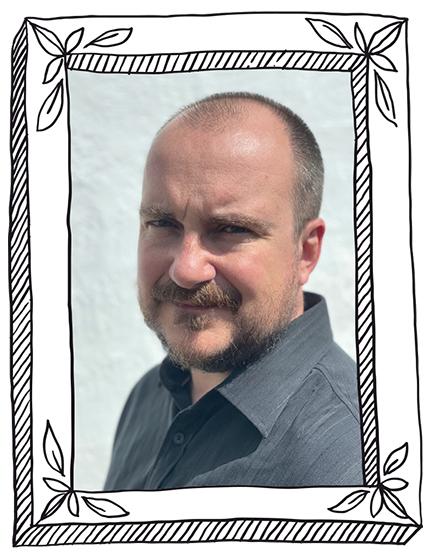Colin Smith, head of forensics, HMRC, London
When and why did you join the civil service?
 I joined the civil service in 2014 in the Competition and Markets Authority. I started my professional life as a police officer and ended up in forensics when computers started to become critical in criminal investigations.
I joined the civil service in 2014 in the Competition and Markets Authority. I started my professional life as a police officer and ended up in forensics when computers started to become critical in criminal investigations.
After 10 years, I left the police thinking I could make a fortune in the private sector with my newly acquired skills. I’ll be honest – I hated the private sector. Yes, I had a better salary but the amount of hours I was expected to work meant I had no home life at all. I was stressed most of the time and had zero work satisfaction.
I returned to the public sector to regain that unique feeling of satisfaction you get when you see your hard work have real impact. The buzz when you see a bad guy go to prison as a direct result of your efforts really can’t be beaten.
What does your job entail?
I run the team that provides all the forensic services to HMRC’s Fraud Investigation Service. It’s my responsibility that the team work effectively, provide a high level of service and are fully equipped to meet the needs of modern law enforcement. This mainly involves lots of listening and communicating – I listen to investigation teams to ascertain what challenges are being faced when investigating fraud and then talk to my team of experts to see how we can solve those problems.
How close is your professional life to a crime drama?
It depends what crime drama you watch, I suppose! We do wear lab coats, have high-tech equipment and recover DNA and fingerprints from crime scenes. But on the TV, they never seem to be doing the same amount of paperwork! Also, in crime dramas they never seem to be enjoying their job. In my labs, you are far more likely to see the teams smiling and having a laugh rather than worrying about inside men or women.
Your background is in the police. How different is the culture of the civil service from that of the police?
As I work in law enforcement within the civil service, there are more similarities than differences. The drive to do well is still the same, and we’re both here to lock up the bad guys and that shared passion is there in both cultures.
Being a police officer is a thoroughly exhilarating and rewarding experience but the civil service offers so much more in terms of career pathways and opportunities. For example, I was fortunate to be on the civil service Future Leaders Scheme and I now hold a very privileged position of heading up a fantastic national team.
"In crime dramas they never seem to be enjoying their job. In my labs, you are far more likely to see the teams smiling and having a laugh"
What is a “complex” tax fraud case?
Because my background isn’t in tax I find every case complex, to be honest! Luckily there are many top experts in HMRC who know about that sort of thing.
In truth though, I would say a complex case is made up of multiple compound factors. A single case could involve many suspects in multiple companies linked to big organised crime gangs with deeply complex financial trickery which takes many months to unravel. Criminals go to great lengths to cover up their wrongdoings, and you need to work out how they are actually committing the fraud in the first place and then try to collect the evidence. The fact that every modern fraud is enabled by technology makes its investigation even more challenging and complex which is why I’m confident my team will be always be an important part of every investigation for years to come.
Can you give us an example of a case you’ve worked on recently?
I can tell you about an organised crime gang attempting to import tobacco illegally into the UK. A lorry known to contain tobacco was stopped at Dover and searched. Luckily an earlier piece of evidence in the investigation showed the design for a hidden compartment on the lorry where the tobacco was being stored. When the driver of the lorry was arrested and interviewed, he claimed no knowledge of the tobacco. A number of mobile phones were found on him and my team worked quickly to recover the data. Revealing evidence, such as photos, videos and WhatsApp messages, proved that the driver was fully aware of the tobacco and in fact had helped to conceal it. Our in-house team also found his fingerprints all over the goods. You can’t argue with the forensics!
What’s the largest amount of money you’ve ever recovered for HMRC?
My team support all fraud investigations and often recover the key evidence that leads to the big recoveries. I know of cases where the amount recovered due to the combined efforts of all teams has exceeded £300m.
This profile is part of a series looking at the huge diversity of people and roles that make up the modern civil service. Read more here